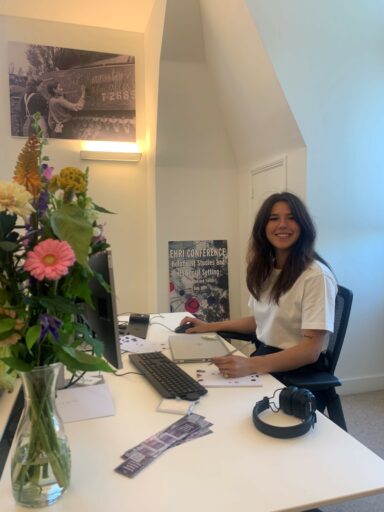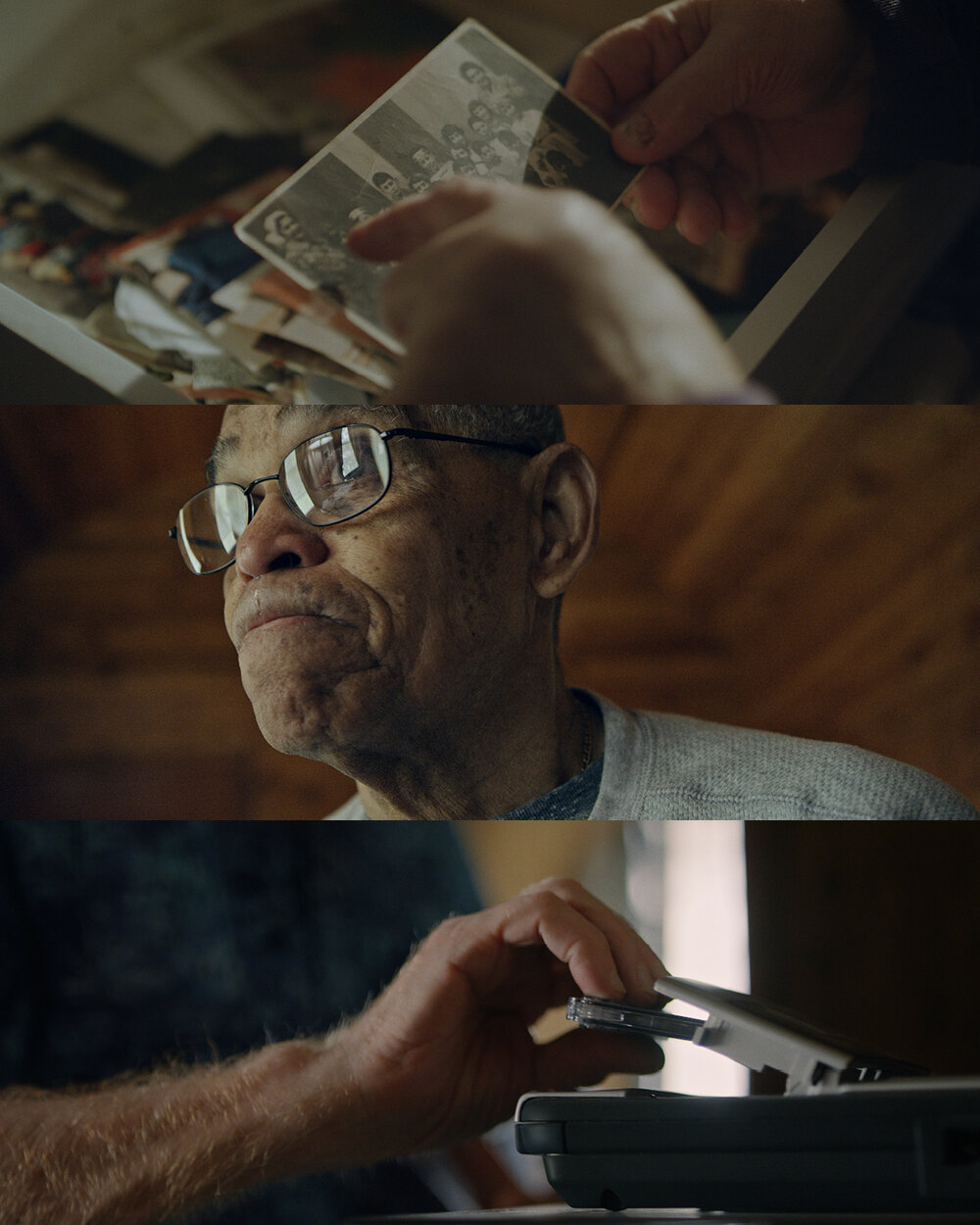EHRI’s First Intern

EHRI’s First Internship: Anthonia Prins
Between May and July 2024, I had the opportunity to intern for the EHRI team to support the creation of the third and newest season of their podcast: “For the Living and the Dead: Traces of the Holocaust.” As a second-year Media and Culture student studying at the University of Amsterdam, now in my final–year, working alongside the EHRI podcast was not only an insightful experience in terms of skills application from my course, but it was an incredibly inspiring project. During the production of each podcast episode, I found it particularly compelling to learn not only about the victims and their stories, but also about the lessons and legacies that continue to survive due to the preservation of these accounts. The individuals who hold these stories close to their heart, who preserve and are the passages to such knowledge, are a testament to why having platforms like the podcast are important; it provides a voice for stories that would otherwise stay silent. At face value, one may be quick to lean towards more “traditional” mediums such as newspapers, news channels, academic writings, or books, when thinking of political and cultural debates; but, mediums such as film, video games, podcast, etc., equally confront values and norms in society, and have the ability to shape culture and induce social change.

Courtesy of Jessica van Tijn and Pamela Sturhoofd.
Within my bachelor study, film studies is a dominant aspect of the curriculum, where film and media objects are to be critically analysed and respected as active participants of culture formation, providing valuable commentary of greater discourses. Cinema itself has covered endless types of narratives and stories, including a plethora of topics of vast cultural importance – such as war, mass violence, and genocide – whereby the films utilise the unique spectator-film relationship to visually and sensorially invite a new understanding of cultural events. It poses the question on how cinema can approach such multilayered and complex histories; specifically ones that are inconceivable in violence. These questions are just as applicable in the audio storytelling format of a podcast. The medium’s lack of visual imagery, and reliance on auditory engagement, poses a different challenge to the narrative storytelling, but the weight of the representation is all the same.
In parallel to my internship with EHRI, I was taking the course “Memory and Mass Violence in film” as part of my Bachelor; a course with a specific focus on cinematic representation of genocide in film. As I became more familiar with the academic theories of trauma representation and narrative cinema alongside the podcast production, the importance and privilege of listening became even more paramount; especially, when trying to navigate the intricacies of a lived trauma. On the new season of EHRI’s podcast, four interviewees have experienced this exact process, having produced documentaries themselves, documentaries such as Truus’ Children (Pamela Sturhoofd and Jessica van Tijn 2020) and The Benevolent Dictator (Albert Lichtblau 2016), or worked alongside film studio’s in providing archival and historical guidance for The Windermere Children: in their own words (Trevor Avery, 2020). Hearing first hand from the interviewees, there was personal depth imbued through their words and the way they recalled the experiences behind their works. It showcased the responsibilities and close involvement creators assume when addressing such complex and tragic histories.
I came away with great admiration for all the historians, archivists, teachers, filmmakers, and individuals that I had the pleasure of speaking to during my internship, and I look forward to listening to the new season of “For the Living and the Dead: Traces of the Holocaust” alongside you all.
Listen to the third season of the EHRI Podcast “For the Living and the Dead: Traces of the Holocaust” on Buzzsprout, Spotify, or Apple Podcasts and read more about each episode here.
